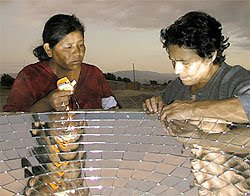Women, Work, and Family: Lessons from Latin America

It’s normal thing in the United States for husbands help their wives with cleaning the house, cooking, or doing the laundry. This is especially true in cases when wives, along with their husbands, work and make their own contribution to the family budget. However, in Latin America, the situation is completely different – such behavior on the part of men would be ridiculed and considered challenging the traditional “machist” perception of manhood.
Today, when more than 100 million (!) women throughout Latin America and the Caribbean work, a traditional Latin American perception of gender roles is still impeding improvements in the quality of women’s life: the household work is undervalued and there is an overall belief that caring for the home and family is a woman’s responsibility. The tensions between their family life and work also have a negative impact on women’s performance and commitment in the workplace, which, in turn, decreases their own productivity and that of the national economy.
Yet, a few Latin American countries have achieved quite a notable progress in addressing these issues. For example, Costa Rica offers day care plans for almost all workers; Brazil has a pension plan for workers in the informal economy, which often includes more women than men; and Chile has paternity leave as well as maternity leave. To read the full version of the joint UN and ILO report “Work and Family: A New Call for Public Policies of Reconciliation with Social Co-responsibility” that describes some of these strategies in detail, please click here.









